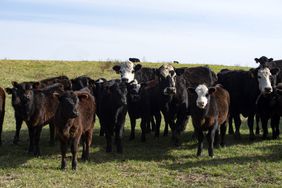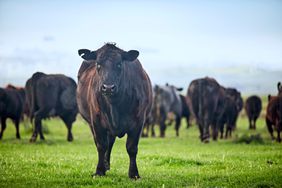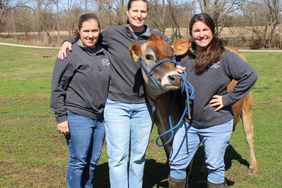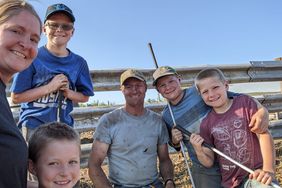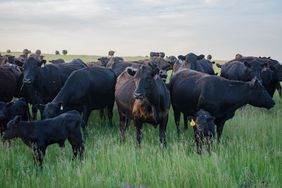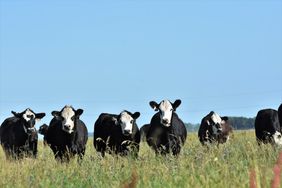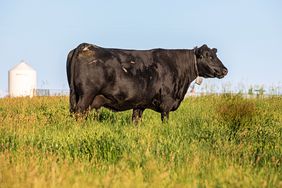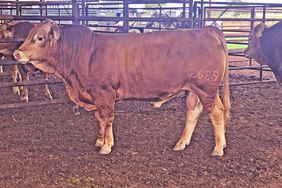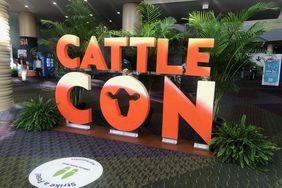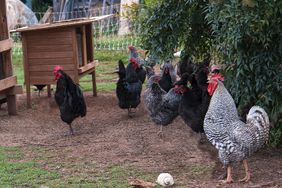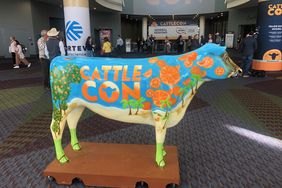:max_bytes(150000):strip_icc()/Stackhouse-Lawson-Kim-683x1024-1-d14a5c83d7fc4c9882317226f3ba99a6.jpeg)
Kim Stackhouse-Lawson is assembling a team of experts to find sustainable solutions for animal agriculture.
She's doing this as director of AgNext, a one-of-a-kind initiative at Colorado State University.
AgNext brings together industry partners, producers, and researchers who work in livestock economics, production, feedyard systems, nutrition, and other areas along the continuum of sustainability in animal ag.
The research projects they do are practical and focus on advancement of the science of animal agriculture for the benefit of the food supply, the health of animals and ecosystems, and the success of producers.
"While most sustainability initiatives define economic sustainability as maintaining economic status, we actually define it as profitability," Stackhouse-Lawson explains. "We can't just allow farmers and ranchers to maintain their economic status because that's not economically sustainable. We have got to get our rural communities and our farming and ranching partners to higher profitability and a higher profit margin so that we can ensure food security."
- READ MORE: Growing sustainability
In advance her session at the Women in Agribusiness Summit, Animal Agriculture's Role in Mitigating Climate Change, Stackhouse-Lawson talked with Successful Farming about the topic and how AgNext is developing solutions.
SF: What does sustainability mean to you?
KSL: For me and the AgNext group, sustainability is about continuing to improve the way producers and organizations do business every single day.
We want to be the change agent or the innovators looking at what tomorrow might bring. Our industry partners push us to look 5-10 years down the road to understand what challenges are coming so that we can start working on the innovative processes they will need to implement to do better business tomorrow.
We view sustainability and continuous improvement through three distinct pillars: environment, social, and economic.
SF: What are the challenges you face in your work?
KSL: It is difficult to measure and track progress across those three pillars. People and companies define and prioritize outcomes differently. Part of our job is to see the world in a systems perspective, to be transparent and authentic about tradeoffs, and not to be judgmental
We need to figure out how to accurately measure the outcomes to help people make more informed decisions and that's often the hardest part, but I think it's the most important part.
Another challenge is this notion that a silver bullet exists that is going to stop any kind of greenhouse gases or any impact that would come from agriculture production. And that's false. Everything we do on the planet has an impact, from the cars we drive, clothes we wear, to the houses we live in. And in agriculture, we raise cattle and crops in different regions across the globe. A strategy that may work for a rancher in Florida to increase carbon sequestration or reduce methane emissions may not be the same strategy that a Colorado rancher would implement. And if they did, it could cause an adverse effect.
SF: What kind of research do you have planned?
KSL: One of our trials will be a trial with 600 feedlot steers , looking specifically at, as the world gets hotter, how might cattle adapt and efficiently partition nutrients.
There is research we will do with feed additives and research to measure emissions from cattle grazing on irrigated pivots and short grass prairie to understand the impact of forage type on methane emissions.
We're looking at collaring cattle with precision technology to see if they can be directed to higher quality forage at different times to potentially reduce methane and also send the plant roots deeper to sequester more carbon.
We really believe solutions should stackable and we should do them in partnership with producers. If we can do good research alongside the people who are executing this every single day, I think we will innovate and implement faster because of the trust that we built.
SF: What do you hope attendees will take away from your session?
KSL: I'll be striving to encourage the audience to not get myopic when it comes to sustainability because if we get focused just on carbon or just on climate, then we will miss things. We may create more problems and they may not be an environmental problem, but maybe a social equity problem or maybe an animal welfare problem or something else.
- READ MORE: (Not) Plowing to net zero carbon emissions
We need balanced ambassadors who care, who are passionate about climate and carbon sequestration, want to continuously improve, but want to do it for the right reasons and in the right way. And I think women are the most powerful deliverers of that particular message.
:max_bytes(150000):strip_icc()/wia_cmark_outlined_1col-002fcb9ac9af439e9abca3423c92aee6.png)
About Women in Agribusiness
The Women in Agribusiness Summit in the U.S., introduced by parent company HighQuest Partners in 2012, is renowned for annually convening close to 1,000 of the country's female agribusiness decision-makers. The year-round WIA community and initiatives have grown to include WIA Membership, WIA Career Connector, WIA Demeter Award of Excellence, Scholarships, and the WIA Today blog. Learn more at womeninag.com.
For additional details about the 2022 Women in Agribusiness Summit, look to www.womeninag.com or email info@womeninag.com. See the full agenda and register here.
Biography
Dr. Kim Stackhouse-Lawson is a professor in the department of Animal Sciences at Colorado State University and the Director of AgNext. AgNext utilizes a multidisciplinary approach to advance sustainable solutions for animal agriculture. Prior to leading AgNext, Kim was the Director of Sustainability for JBS USA where she was responsible for coordinating the company's corporate sustainability program and strategy. Kim also served as the Executive Director of Global Sustainability at the National Cattlemen's Beef Association where she developed the industry's sustainability program.
Kim received her PhD in Animal Science from the University of California, Davis and was a postdoctoral fellow at Kansas State University College of Veterinary Medicine Beef Cattle Institute. She was awarded as the 2018 Distinguished Young Alumni by the UC Davis College of Agriculture and Environmental Sciences. She and her husband, Spencer live on the eastern plains of Colorado and have two sons, Weston and Callan.

